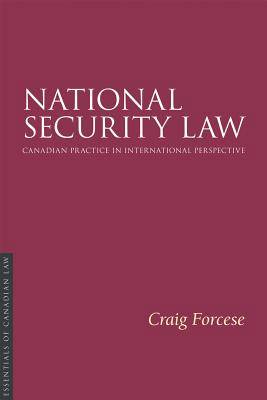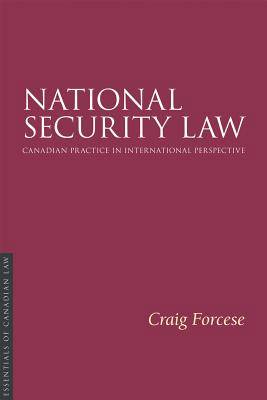
- Retrait gratuit dans votre magasin Club
- 7.000.000 titres dans notre catalogue
- Payer en toute sécurité
- Toujours un magasin près de chez vous
- Retrait gratuit dans votre magasin Club
- 7.000.0000 titres dans notre catalogue
- Payer en toute sécurité
- Toujours un magasin près de chez vous
Description
National security law is governed by a vast array of federal and provincial statutes. But this text, part of Irwin Law's Essentials of Canadian Law series, also draws on core international, constitutional, and common law doctrines and the comparative legal experience of other states. In addition to describing in detail the applicable legal principles, the book flags key dilemmas and challenges that run through national security law. It also critically assesses certain issues of contemporary relevance, such as the use of armed force, torture, government secrecy, surveillance, intelligence information sharing, and detention without trial.
National Security Law is divided into three main parts along the following themes:
- national security structure (that is, the special institutional infrastructure--both national and international&# x02014;set up to deal with national security issues);
- national security objectives (that is, the law related to several specific threats that the state seeks to curb or forestall, including terrorism, weapons proliferation, political emergencies and natural disasters); and
- national security techniques (that is, the law governing such practices as government secrecy, surveillance, intelligence sharing, detention, and interrogation).
Spécifications
Parties prenantes
- Auteur(s) :
- Editeur:
Contenu
- Nombre de pages :
- 655
- Langue:
- Anglais
- Collection :
Caractéristiques
- EAN:
- 9781552211441
- Date de parution :
- 01-12-07
- Format:
- Livre broché
- Format numérique:
- Trade paperback (VS)
- Dimensions :
- 153 mm x 229 mm
- Poids :
- 911 g

Les avis
Nous publions uniquement les avis qui respectent les conditions requises. Consultez nos conditions pour les avis.






